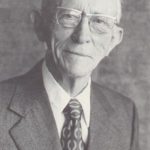Description
PEACE LIKE A RIVER
A Book of Meditations
By
VANCE HAVNER
Author of “Rest Awhile,” “Consider Him,”
“Road to Revival,” “The Secret of Christian Joy,”
“By the Still Waters”
2016
III CLOUDS AND COBBLESTONES. 11
IX “WHERE IS THE LORD GOD OF ELIJAH?” 29
XV BLACKOUT BRINGS THE STARS. 48
XVI AN EXPERIENCE THAT TALKS. 51
XVIII TROUBLES AND TRIUMPHS. 57
XX THE PREACHER AND THE PHARMACIST. 63
XXVI HAVE YOU GOT THE GOODS?. 82
XXX A WATERSIDE REFLECTION. 95
FOREWORD
This third collection of meditations, after the pattern of By the Still Waters and Rest Awhile, makes no claim to be profound. Surely in these days we must all be “fed up” with efforts at profundity. A miserable generation, buried under the ruins of its Tower of Babel needs simple truth like sick bodies need old-fashioned air and rest and sunshine. Like David in the cave of Adullam, men long for a drink of water from the well at Bethlehem.
This little volume seeks to offer a cooling drink to parched souls in a dry land where no water is. It is offered in the name of Him who invited all to drink of Living Waters never to thirst again. “As cold waters to a thirsty soul, so is good news from a far country.” There is good news from heaven: it is a day of good tidings from above and we would not hold our peace
V.H.
Greensboro, N. C.
I PEACE LIKE A RIVER
Today I have been strolling “down by the riverside.” It is late April and, if one can forget the newspapers long enough, the whole world seems in tune. Certainly one can understand why it is “down by the riverside” that the colored folk sing of laying their burdens down not to study war any more.
Another thought lingers with me this perfect morning. It is God’s word in Isaiah: “O that thou hadst hearkened to my commandments! then had thy peace been as a river and thy righteousness as the waves of the sea.” It was spoken to a rebellious people long ago and it is just as timely to a troubled world today. Here by the riverside, away from dust and dirt, hurry and rush, among the birds and blossoms, one could easily wonder: “Why can’t this poor world be like this? Why must crime and war, sin and shame bedevil us and why do we fools have to butcher each other when we might have peace like a river?”
God’s answer tells why. We will not have peace without righteousness. We will never get rested until we get right. There is peace to be had, peace with God through our Lord Jesus Christ and then the peace of God that umpires and guards the heart and mind. We do not keep it, we are kept. “Thou wilt keep him in perfect peace whose mind is stayed on thee because he trusteth in thee.” And then we can sing:
“When peace like a river attendeth my way;
When sorrows like sea-billows roll—
Whatever my lot, Thou hast taught me to say,
It is well, it is well, with my soul.”
The secret of it is no mystery. “O that thou hadst hearkened unto my commandments!” What are they? A string of good deeds by which we attain peace? Never. Only three things does He command.
“God commandeth all men everywhere to repent” (Acts 17:30). “All have sinned” and before we can have peace and righteousness, sin must be faced. We must see ourselves to be sinners and be sorry enough for sin to turn from it, forsake and renounce it. “Repentance toward God” is His commandment, for “except ye repent, ye shall all likewise perish.”
But repentance is not enough. “And this is his commandment, That we should believe on the name of his Son Jesus Christ” (I John 3:23). “Believe on the Lord Jesus Christ and thou shalt be saved.” It is the work of God to believe on Him whom He hath sent. “He that believeth not is condemned already” and he is condemned “because he hath not believed in the name of the only begotten Son of God.”
And then there is joined with this command of faith, “and love one another.” “This is my commandment, that ye love one another, as I have loved you” (John 15:12). This is the Christian’s law, the law of Christ, the law of love.
Repent, believe, love. “Whoso hearkeneth unto me shall dwell safely and shall be quiet from fear of evil” (Prov. 1:33). These are His commandments. Hear them and heed them and yours shall be peace like a river. “Mark the perfect man and behold the upright; for the end of that man is peace” (Ps. 37:37).
II BREAD ON THE WATERS
It was in a fish hatchery in the Northwest that they told me how the tiny salmon are released in a tributary, find their way to the river and then to the sea and after a year or two return to the same river and the same tributary whence they started.
Of course there came to mind the verse from the Word, “Cast thy bread upon the waters: for thou shalt find it after many days” (Ecc. II:I). No one can explain how the salmon find their way back to the identical stream where they started their journey years before. Nor can anyone explain how the smallest deed done in the name of Christ comes back one day to the doer of it laden with blessing. But it does. God has endowed his salmon with a strange wisdom that brings them home again. And He has ordered a blessed provision for His servants that lets no cup of cold water lose its reward; bread cast upon the waters comes back multiplied.
In Boston I saw a plaque marking the spot where an obscure Christian laid a hand on a broad-shouldered New Englander and so brought Dwight L. Moody to know Christ. That bit of bread cast upon the waters has traveled around the world and is still washing up in blessing on the shores of every continent.
Some time ago I had a letter from a preacher who had been called to the ministry through a sermon he heard me preach over twenty years ago. I did not know when I cast bread upon the waters that night that twenty years later it would return in a grateful letter.
And think of those whose lives we may touch and bless and never know it until eternity reveals it all. Our Lord advised us to make friends with money so that when we reach heaven we may be met by a reception committee of those we have blessed. There is absolutely only one financial investment that is perfectly safe and that is a deposit with heaven.
Now, strangely enough, casting bread upon the waters is just about the most uncertain thing you can imagine. What can be more haphazard than throwing bread on a moving stream? How could one possibly expect to get returns on a fling like that? “Laying up treasure in heaven” is a solid, substantial phrase but casting bread on water sounds like poor business. But that is just where a secret lies concealed. The Spirit of God used just this phrase because investing time and thought and talent and money in the things of the spirit has always seemed folly to this poor world. But after stocks and bonds have failed and money is worthless, earth’s real millionaires are found to be investors in the eternal like Paul, who wound up his career with only an overcoat and a few books but is still drawing dividends because he invested with Him who is able to keep that which we commit unto Him against that day.
It has been said that the tiniest pebble dropped upon the water will start undulations that will reach the farthest shore. Certainly God has wrought into this spiritual world an eternal principle that brings back to the starting point again every holy deed done in the name of Jesus. Therefore, the wisest man is he who spends and is spent casting his bread on the waters for Christ’s sake in loving service. Hit or miss it may appear to the poor deluded dollar-chasers of this present world, but the soundest business on earth it will turn out to be when God audits the books someday.
III CLOUDS AND COBBLESTONES
Blessed is he who can bring his vision down into the valley and live what he saw among the clouds as he walks the cobblestones. The vision must be followed by the venture, the mystery brought down to the misery. Our Lord came down from the mount of transfiguration to meet human need in the valley and thereby He set us an eternal example.
Moses did it. Elijah gathered strength at Cherith to face Ahab. Isaiah saw the King and from that holy hour went forth to face a hostile world. Jeremiah met the Lord but he did not hide away to enjoy his communion; he went out in the strength of it, timid soul that he was, to minister to a godless generation. Paul had his season in Arabia but he came out again bringing his vision with him.
Our lives are so ordered that we have seasons ranging from clouds to cobblestones. Paul rose as high as the third heaven and saw glories he could not tell. But in the very same chapter he treads the cobblestones with his thorn in the flesh. It would never do for life to be entirely in either sphere. The Thrilling Touch is lovely to relate but the Tedious Trudge is just as necessary: to spend all our days in the third heaven would serve neither God nor man.
Then, people have a way of separating themselves into Dreamers among the Clouds and Doers among the Cobblestones. The headache of many a pastor has been the problem of how to get them together. What church is there that has not its quota of cloud-dwellers who are always floating around like balloons, excited over this experience or that doctrine and never hitching their star to any wagon? And like the poor, there are ever with us the cobblestone-plodders who are always working in the church but hardly knowing why. So they go, the star without the wagon and the wagon without the star, and never the twain do meet. If the visionaries could only get down to practical work and if the workers could see the vision we might set the woods on fire.
And ministers themselves must ever reckon with clouds and cobblestones in their own living. Those blessed hours in the study, hours with the Word and prayer, when heaven draws near and glory floods the soul,—how precious to the preacher are these seasons among the Clouds 1 But he must rouse himself from his mountain-top delight and get down into the valley at least by mid-afternoon or the deacons may remind him that he is falling down on his visitation. Since preaching began, there has been friendly banter between the Cloud-dwellers of the Study who do not like practical pastoring and the cobblestone-pounders who do not like meditation. Well, a proper mixture of both is rare but very desirable: the faithful shepherd must know how to bring the Heights down to the Heartaches.
Divine grace has made ample provision both for Clouds and Cobblestones. They that wait on the Lord shall mount up with wings like eagles, there is strength for the Clouds, power to live high. But they shall also run and not be weary, walk and not faint, and there is grace for the Cobblestones, power for the tiresome trudge.
IV “SEEK THEM NOT!”
Seekest thou great things for thyself? Seek them not.” It was God’s timely word to Baruch and never was it more needed than with the saints today. The fever of the age has snared the believers and the mania for bigness, big churches, big crowds, showy results has wrought havoc in the house of God.
Sometimes one wonders how many people really want to hear the Word of God. Americans have been entertained for so long that the Church has supposed that it must compete with the world. There must be a brass band, pictures, stunts, or else the preacher must choose some wild and woozy topic never heard on land or sea if the chasers of new things are to be lured within the sanctuary. “Putting it over,” “putting it across”—these watchwords, borrowed from the shop- talk of this present age, are made the yard stick of successful preaching.
Yet where, within the Word of God, is the size of the crowd or the popular response made to be the criterion of real preaching? Certainly not with Isaiah, who was called to preach and told at the same time that his generation would not listen to him. And that same information is used by our Lord and later by Paul to explain the poor response of their day to the message they bore. None of these modern marks of ministerial success that measure the preacher by the statistics he can report were distinguishing characteristics in the Bible days.
Our Lord had crowds in the days of loaves and fishes, but He lost that crowd as He drew nearer Calvary. Peter had a crowd on the day of Pentecost at the beginning of the Church, but usually the Gospel spread through small groups meeting from house to house. Our Lord preached a crowd away in the sixth chapter of John and that sort of preaching will do the same thing today. He spoke of a deep matter, the Bread of Life, and few there be today who care for the deeper things. You can discourse to the multitude on some flashy theme of momentary interest, but speak of a closer walk with God and most of your hearers will move on to the next sensation.
The final records may show some humble country preacher to have been just as truly Spirit-filled and blessed of God as another who moved multitudes. God does, indeed, raise up a Wesley or Whitefield or Moody to move throngs in the day of some unusual spiritual tidal wave. But being human and easily impressed by mass demonstration, we are too quick to conclude when our work suffers by comparison that these men were more greatly blessed because they were holier and that they had something we don’t have. We forget that God has a work for each man, that the Spirit divideth severally as He will and that the size of the gift and work is by no means the standard of Divine approval. Our Lord told us that some would be greatly rewarded for work they scarcely realized they had done, so small it seemed, but in serving the least of His brethren they had served Him.
The itch for bigness is a dangerous thing. It has made a castaway of many a man whom God once richly blessed. A man should desire to be neither larger nor smaller than pleases God. Better than that, he should not bother at all about how large or how small but rather how faithful he shall be. God keeps the books and His tally often comes out quite differently from ours. Not fame and figures but faithfulness, let that be our concern, for eternity will revise all proportions and much that seemed small will loom large, while much that excited envy here will call for pity there.




Reviews
There are no reviews yet.